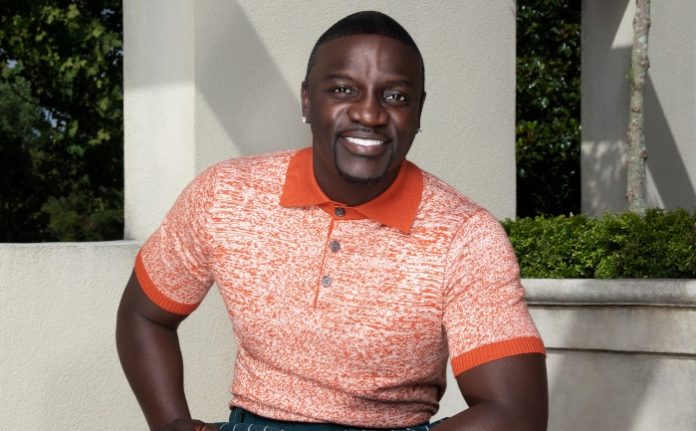Casual music fans and lovers think they know the story of Aliaume Akon Thiam. Sure, they know the bare minimum… Like a lot of our young brothers trying to find themselves, he made some poor decisions and was arrested. He created music to help pass his time, while doing his time. Shortly after coming home he found success with one of the songs he crafted during that time, making what would have then been the equivalent of a viral hit, “Locked Up.” He put out some classic hits for a few years, over the course of 3 albums in 4 years… but then, almost as quickly as he seemingly appeared, he seemingly disappeared, from the music scene at least. At least that’s how it might have seemed to the casual fan.
That story doesn’t even cover the tip of the iceberg as far as Akon is concerned.
To truly understand the artist and his legacy you have to go back. Way back…
Born in St. Louis, Missouri, to immigrant parents, Akon was immersed with his African roots at an early age because he spent a large chunk of his childhood in his family’s homeland of Senegal. It was there that he developed a love for all types of music and more importantly his love for his African culture.
When he returned to America, he disliked it. In large part because it didn’t feel like home. So like many young people he began acting out. While he would still visit Senegal, finding his place in America, in school and in his neighborhood was a bit of a challenge. When he finally began living with his brother, settling in New Jersey, he was as comfortable as he could be outside of Senegal, but he quickly found the street life to be his detriment. On the one hand, he was making music and making friends who were also pursuing music, including Wyclef, and the other members of The Fugees. That taste of music industry shine was a great first step into music success, but it wasn’t enough to keep him out the streets. In fact, he wondered internally, if he could take music as seriously as his peers.
It wouldn’t be long before he would be behind bars. Ironically it was that prison stint which provided him with the motivation to truly pursue his musical passion, this time without any distractions. Akon also decided to use some of the entrepreneurial qualities that he developed in his illegal activities to really be the engine behind his music. Not only was he creating great music, but he was making great business decisions in the background that would help fortify his position in the music industry for years to come, even while he wasn’t actually releasing music.
But even after 2008, Akon was still releasing music, dropping several mixtapes and compilations projects. He put out singles as well, doing everything to keep up his brand.
—
In the waning days of Summer, back in mid-September, I made the trip to the BMG building in midtown Manhattan for my first meeting with Akon. This would be the second time I spoke to the veteran artist. The first time was back in 2004, via phone, when he was taking over radio with his single, “Lonely,” from his debut album, Trouble. That feels like a lifetime ago.
Inside the BMG building is the home of Akon’s newest venture, a label group, the Akonik Label Group, home to four record labels, each representing a different genre of music. We’ll get into that a bit more later.
Dressed in a sky blue button up, with an all white plain cap, with matching white linen pants, Akon saunters through the offices with a presence that instantly tells you he is a boss. Still, his presence doesn’t seem to make those around him uncomfortable, like I’ve seen all too many times with successful artists. The only sign of his success and good fortune is a watch. Without knowing the brand, its obvious the watch could only be worn by someone who has amassed a certain level of wealth. Akon wraps up a meeting in the office hallways, making plans for upcoming single releases and heads to the conference room to meet with me. He stops to talk with family members who have have gathered in the lobby to meet with him and assures them that after this interview he will be done with his responsibilities for the day.
Also, leaving the aforementioned meeting is Kedar Massenburg, Akon’s partner is in the Akonik Label Group venture. With Massenburg, he’s all smiles and a personable man, but there’s a swagger of a veteran music executive that I’ve seen before having been around L.A. Reid and Russell Simmons. When Kedar talks, you listen… even if he’s not talking to you.
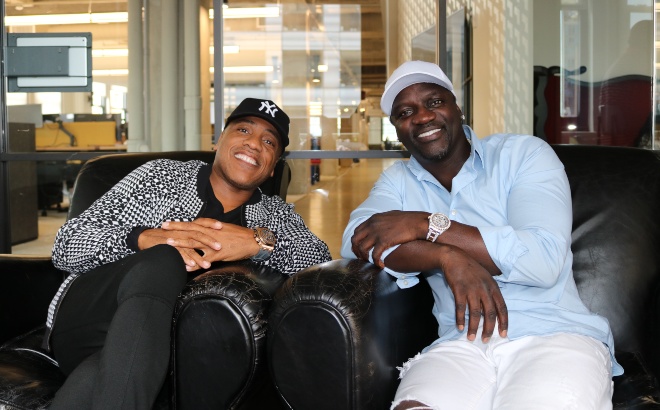
Once Akon and I finally got our conversation started, we touched on a variety of topics for almost an hour conversation. The conversation just flows since there is so much to cover for an artist with over 15 years in the game as a professional. But it wasn’t until the end of the interview that I was able to get around to a question I’ve wondered myself for years. We’ll begin there and work our way back to the present.
Parlé Mag: While the majority of fans know you made your official debut with “Locked Up,” that wasn’t your first major look as a recording artist and not even the the first time you were involved in a classic record. Your first appearance in the music industry actually came on The Fugees classic album, The Score, on “Fu-Gee-La (Sly & Robbie Mix)”. That was in 1996!!! I know most artists that we see as successes started their journey long before we finally see them in the mainstream, but first of all how did you even connect with Wyclef and The Fugees and why did it take so long to find that solo success?
Akon: Those were just the guys from the neighborhood. I was part of the whole Booga Basement family with Wyclef and them and I was just one of the kids in that Jersey neighborhood. We all had music aspirations but honestly, for me, I was just having fun. And I wasn’t taking it too seriously yet. That whole Fugees crew was way more serious than I was at the time. I’m thankful for that opportunity and I learned so much working with them, but I wasn’t there yet.
Parlé Mag: You came into the industry in 2004 and really took the industry by storm. By 2008, you had dropped your third album, been nominated for multiple Grammys and made appearances on songs by a who’s who list of artists. You seemed to be on top of your game, but then to the casual fan, you just seemingly disappeared. Catch people up on what you were doing and what you were dealing with around that time.
Akon: There was really a lot happening, but for me at the time, I was really caught up in legacy and trying to leave a legacy. At the time I really didn’t need to make music, but I was still putting out a song here and there for the fans. Then a few years later I got into a dispute with my long term business partner and we ended up having to battle in court. That was a long process but I was able to get out of partnership and get out of my deal with my label. And now, I am finally in a place where I am ready to put out some music for my fans. And there’s going to be a lot of it because I know I’ve made them wait.
Parlé Mag: Tell me about the new music. Fans have waited a long time and we’re excited.
Akon: When I was ready to put out new music, I knew I had to do something different because right now everything in Hip-Hop and everything on the radio sounds the same. And I wanted to basically do what I been trying to do my whole career, which is work with artists of all genres and release various types of music so that nothing sounds like the other. So I linked up with Kedar Massenberg and started Akonik Label Group to release all my projects and eventually be able to sign all my artists.
I’m releasing projects from all the different genres we represent. First up, I’m putting out an album that is all in Spanish with a bit of reggaeton, bachata and even some merengue for my Latin people. That one is called El Negreeto on my Ke Lo Ke Label. That one is just genuine music for the Latin culture.
—
El Negreeto was released on October 4th. Akon teamed up with Latin producer and Latin Grammy Award-winning artist Maffio to really get the album where he wanted it to be. Akon said that creating that album was probably the one that made him the most nervous, because he wanted to be sure he properly represented the culture and the people. Brazilian artist, Anitta, Puerto Rican artist Farruko, and Cuban-American artist Pitbull all make appearances on the album. The lead single was “Como No” featuring Becky G.
Akonik Label Group is comprised of four record labels each focusing on specific genres: Akonda (Afrobeats), Akonik (U.S.), Ke Lo Ke (Latin music) and Jamakon (Caribbean). The goal of each label is to sign and promote talent from all of these regions.
Most recently on October 25th Akon released his second album of the month and the second on his Akonik Label Group, an afrobeats album titled, Akonda.
—
Akon (continues): Akonda, that one is named after the label and it is strictly Afrobeats music. I’m going back to my roots and doing that for all my people all over Africa. Then, in November I will be putting out something for those fans who are my true Hip-Hop and R&B fans. That album is called The Konnect off the Akonik label. Expect the traditional Konvict Muzik sound you’ve been missing all these years. I also have something for my Caribbean fans coming in 2020. I want to represent all music, all genres, not just Hip-Hop, not just R&B.
Parlé Mag: You mentioned linking up with Kedar Massenberg for this label, how did you two end up collaborating to bring this all together.
Akon: We’ll I’ve worked with Kedar in the past, so I knew him and his work ethic and the type of focus he could bring to this. So around the time I was getting out the situation with my last partner, I knew I needed to work with someone who hustled just as hard as me and who thought about business in the same way I did. When I was signed to Universal I was making a lot of moves and people didn’t know because I was still in the background. That’s how Kedar is and that’s why I knew I had to work with him.
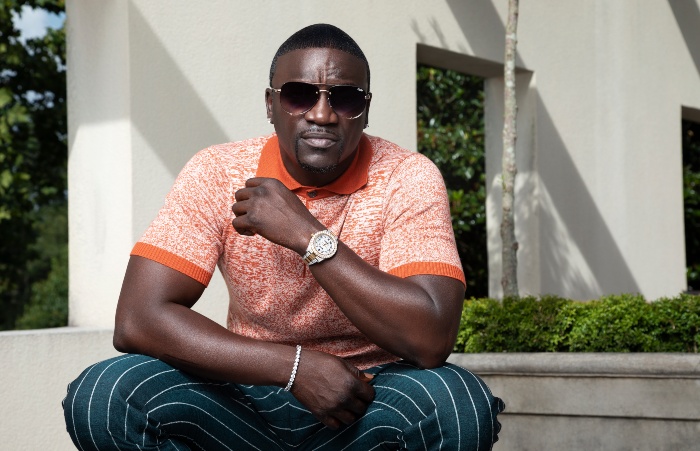
Parlé Mag: Speaking of making a lot of moves in the background, one of my favorite things about you is that you were so involved in the industry. You signed folks like T-Pain, Lady Gaga, various producers including R. City, singer like Ray Lavender and Colby O’Donis. All the while most people had no idea.
Akon: Right. But that’s how I wanted it. I was doing business with 5 different labels at the same time. That’s unheard of. I was signed to Univeral Motown, but I had a label situation with T-Pain over at Jive Records, I had Lady Gaga over at Interscope. P Square at Universal South Africa and Tammy Chin at Universal USA.
Parlé Mag: It was definitely impressive what you were doing in the music industry at that time. Switching gears, let’s talk about this new music. You have the Spanish language album. Definitely a bit of a surprise from you. I guess the first question is: does Akon even speak Spanish like that?
Akon: (LAUGHS) Yeah, I get that a lot. I actually do. I’m not 100% fluent but I do speak conversational Spanish. I can definitely hold my own in a conversation. Si. Yo hablo español muy bien. Yo definitivamente puedo tener una conversación.
Parlé Mag: With Akonda, obviously you’re from Africa, but what inspired you to put this out right now?
Akon: I just love all types of music. I never wanted to be an artist that only put out one genre of music. Back in the day when I released “Smack That” and “I Wanna Love You” it was this revolutionary idea of putting out two singles of different genres at the same time, but that’s what I’ve always wanted to do. So with Akonda, we named it after the record label and it’s just true to Afrobeats and African music. Over the last few years I had some time to really work with some of these artists out of Africa and I love seeing that movement grow and I’m happy to see what it has become.
Parlé Mag: You put out the lead single, “Wakonda,” along with the visual. Talk to me about that track.
Akon: Well that just felt perfect. I wanted to flip the Afro B “Drogba (Joanna)” song and with the success of Black Panther, Wakonda was just perfect. And with the music video, we were able to get Michael Blackson to come out. That was actually supposed to be just a quick parody video, a teaser that we were putting out on WorldStar, but it worked. I still want to do an official video to that song.
Parlé Mag: Speaking of Africa, you’re always on my timeline for what you’ve been doing with your philanthropic efforts out in Africa with Akon Lighting Africa. I feel like there’s a lot of nonfactual information out there about that. Tell me about what you’re doing out there.
Akon: Right. Well it started out as a philanthropic endeavor, but we have been able to help millions of people over there and we are at the point where we are able to make a lot of money. It has become a full business venture for me. I am able to give back at the same time and that is great. We’re going to keep bringing light and resources to as many people in the continent as we can reach. Light, energy and water are essential and our people need it.
Parlé Mag: You recently released the singles, “Benjamin” and “Can’t Say No”. I figure those tracks will be featured on the upcoming The Konnect album. Both tracks are hit records and definitely remind us of that old Akon sound. Lets get into those tracks a bit.
Akon: First, thank you for the compliments. Those two are songs are all part of the sound I wan’t to put out there. I just want to put out great music. That’s what The Konnect is all about, for those day one fans. We just put out a video for “Benjamin” as well.
Parlé Mag: So a few years ago now, I was at a T-Pain listening session and even back then he told me about this plan for you to drop 3 albums. He was saying, ‘listen man, Akon about to be back bigger than ever. He about to drop 3 albums at the same time, it’s going to change the game!’ The whole room was excited about it, but it never came. So how’d we finally make it to this point?
Akon: He was probably talking about my Stadiums project. That was a bit different because that was supposed to be 3 albums in one, all Hip-Hop and R&B, classic Akon. I had planned to release that 3 or 4 years ago, but the timing just wasn’t right. I still want to put that album out though. It may come after I put out these 4 albums.
https://www.youtube.com/watch?v=xIE1KpX7HA0
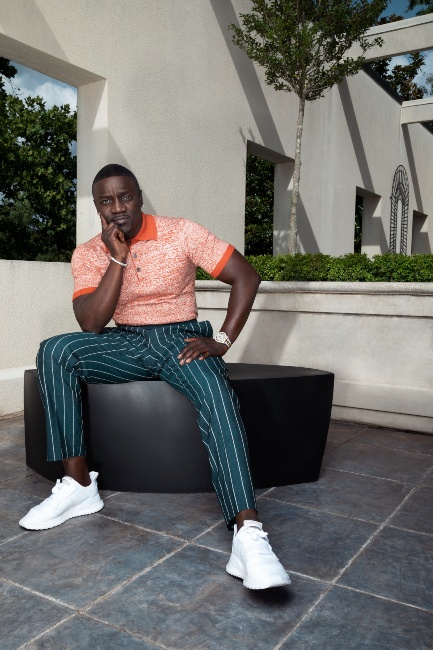
Parlé Mag: What advice do you have for young artists trying to come up to be the next Akon?
Akon: Honestly… I would tell them to pick another profession. This business is not what it used to be. There are soooo many artists coming out EVERY DAY and for every artist you see who makes it, there’s another hundred that ain’t going to make it. There are so many other areas where we can take our talents and there are so many other things in the music industry that you can be. Fame isn’t all its cracked up to be anyway. We need more producers, more managers, more executives, more entertainment lawyers, and so on.
Parlé Mag: You say that and that makes me think about so many of these artists that we see and how its usually so many years between the the time these artists first start making music to the time we finally first see an artist. And that was even the case for you. First saw you on The Score and then it was almost a decade before we saw you again. That’s how this industry is for so many artists.
Akon: For sure. And I had to grind to make it. When I came home that last time, I went down to Atlanta and I opened up a studio. I knew I wanted to make music, but I had to get on my feet. I opened up my studio, Funk Shop. I just started letting people come through there to record for free. People thought I was crazy. But I knew what I was doing. I had everybody up in there, Jeezy, Future, Monica, TLC, Outkast, Usher, Ludacris, just to name a few. And once I was ready to put out my music, I knew I had a bunch of people who I could reach out to for favors. I started calling them all up to return those favors. That’s how I was able to get on all those features early on. Because I needed everyone to know who Akon was.
—
All these years later, Akon still wants everyone to know who he is. All over the globe.
With this new music and his Akonik Label Group, he continues to make himself a global icon.
That’s the real story of Akon. Not nearly all of it, but even casual fans should know more than the bare minimum.
Photo Credit – Cat Harper
Readers Might Also Like:
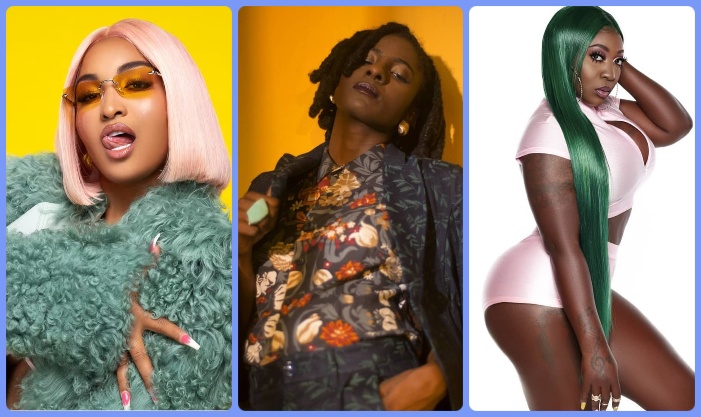 5 Women In Reggae/Dancehall You Should Be Paying Attention To In 2019
5 Women In Reggae/Dancehall You Should Be Paying Attention To In 2019
 [INTERVIEW] Ayo Jay Shares His Path To Becoming A ‘Lazy Genius’
[INTERVIEW] Ayo Jay Shares His Path To Becoming A ‘Lazy Genius’
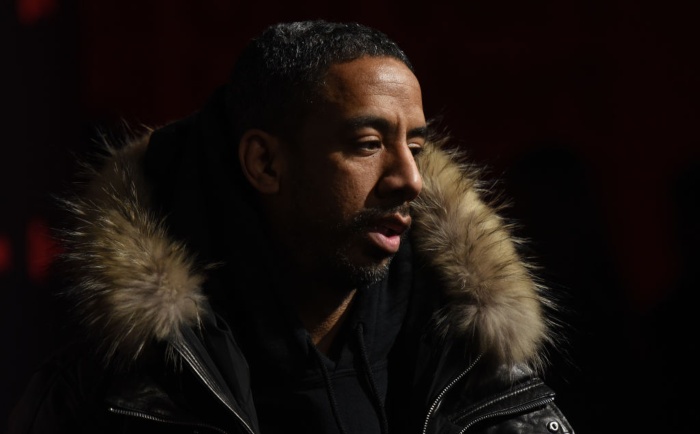 Ryan Leslie Sacrificed A Lot To Settle His Lengthy Legal Battle, But He’s Doing Alright
Ryan Leslie Sacrificed A Lot To Settle His Lengthy Legal Battle, But He’s Doing Alright
 [STREAM] Akon Releases Second Album This Month, Afrobeats Album, Akonda
[STREAM] Akon Releases Second Album This Month, Afrobeats Album, Akonda

